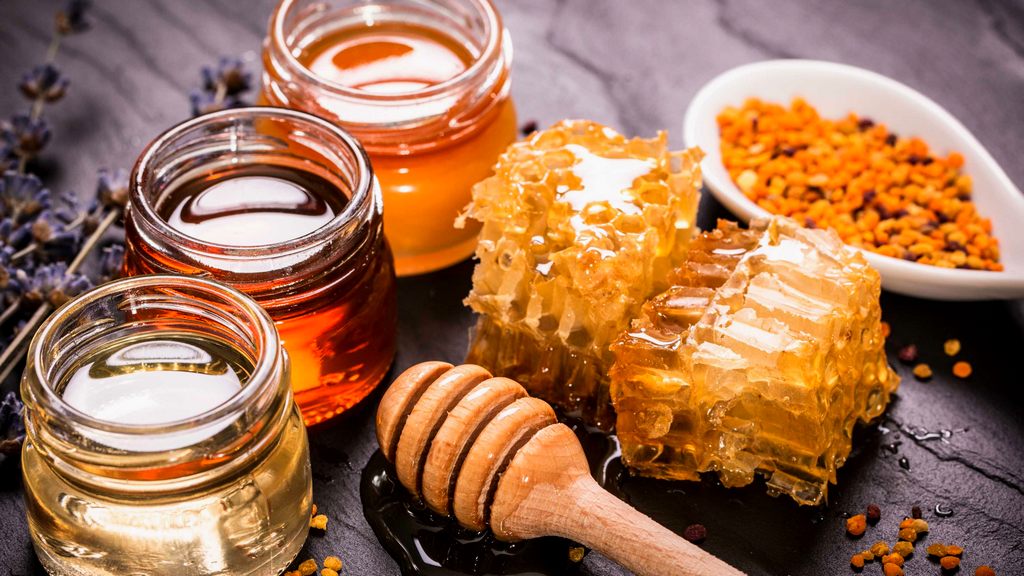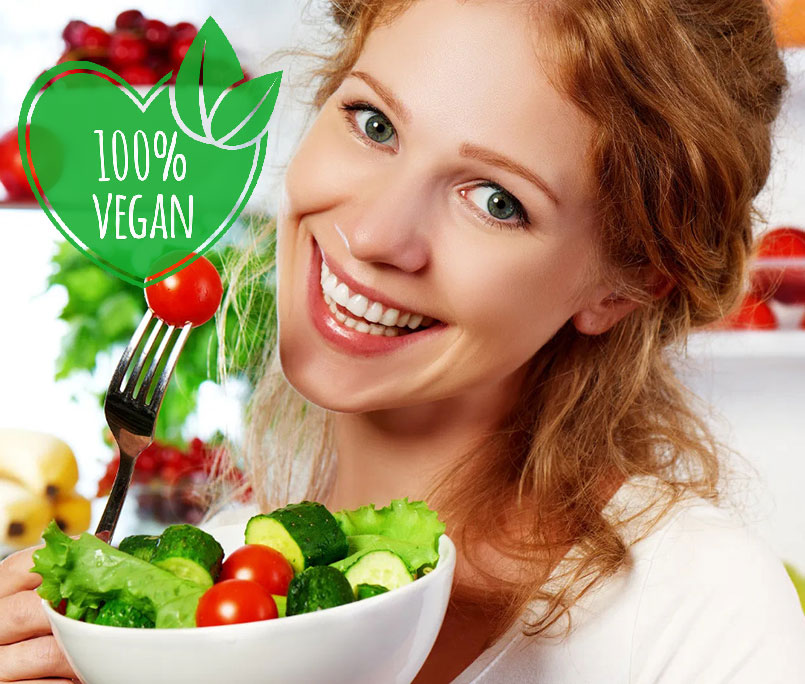What is Veganism?
Veganism, or veganism, more than just a diet, is a philosophy and lifestyle that seeks to exclude all forms of exploitation and persecution of animals for food, clothing or any other purpose.
Veganism is a lifestyle that aims to minimize animal exploitation and cruelty. For this reason, vegans avoid eating animal products such as meat, eggs and dairy products and foods made from them. But many people wonder if this includes food made from insects like honey. This article will help you learn about whether honey is vegan or not.

Honey is a somewhat controversial food among vegans. Unlike overt animal foods such as meat, eggs and dairy products, foods derived from insects are not always grouped in the vegan category.
In fact, some vegans who eat an all-plant-based diet may choose to add honey to their diet. However, most vegans consider honey to be non-vegan and avoid eating for a few reasons explained below. Honey is obtained by exploiting bees.
Most vegans do not see any difference between bee keeping and other types of animal husbandry. To optimize profits, many commercial bee farmers use unethical practices according to vegan standards.
These include clipping the wings of the queen bees to prevent them from escaping from the hive, replacing the harvested honey with nutritionally low sugar syrups, and killing entire colonies to prevent the spread of the disease instead of giving them medication.
Vegans prefer to take a stand against these exploitative practices by avoiding honey and other bee products such as honeycomb, bee pollen, royal jelly or propolis.
Honey farming can harm bee health.
Many vegans avoid eating honey because commercial honey farming can harm the health of bees. The main function of honey is to provide bees with carbohydrates and other essential nutrients such as amino acids, antioxidants and natural antibiotics.
Bees store honey and consume it during the winter months when honey production is reduced. It helps them stay healthy and survive in cold weather by providing them with energy. It is bought from honey bees for sale and is often replaced with sucrose or high fructose corn syrup (HFCS).
These additional carbohydrates are to prevent bees from starving during the cold months and are sometimes given in the spring to stimulate colony growth and stimulate nectar flow. However, sucrose and HFCS do not provide bees with many of the beneficial nutrients found in honey.
What's more, there is evidence that these sweeteners can damage bees' immune systems and cause genetic changes that reduce their defense against pesticides. Both of these effects can ultimately damage a beehive.
Vegans avoid eating honey to take a stand against bee exploitation and farming practices that are thought to harm bee health.

Apply Now
Veganism, or veganism, more than just a diet, is a philosophy and lifestyle that seeks to exclude all forms of exploitation and persecution of animals for food, clothing or any other purpose.
To explain very fundamentally, vegetarianism is to adopt a diet that does not contain animal food, to act consciously on issues such as the sanctity of living life and the sustainability of nature.
Vegetarian diets vary based on the foods they contain and exclude. Vegetarian diet types are; Lacto-vegetarian, Ovo-vegetarian, Lacto-ovo, Pescatary and Vegan
Vegan diets only involve eating directly plants (such as vegetables, grains, nuts and fruits) or foods made from plants. As it is known, vegans never consume meat, nor do they eat foods from animals such as dairy products and eggs.
Vegan diets only involve eating directly plants (such as vegetables, grains, nuts and fruits) or foods made from plants. As it is known, vegans never consume meat, nor do they eat foods from animals such as dairy products and eggs.
Many vegans avoid eating honey because commercial honey farming can harm the health of bees. The main function of honey is to provide bees with carbohydrates and other essential nutrients such as amino acids, antioxidants and natural antibiotics.
The vegan certification process can take from 1 week to 8 weeks, depending on the production conditions of the product. It all depends on the components, processes, suppliers and how well the suppliers communicate and how quickly the V-Mark expert team responds to their demands.
V-Mark vegan vegetarian certified products can use the V-Mark vegan vegetarian logo on their packaging, so vegan consumers around the world can get the product they buy with confidence and confidence.
Vegan Vegetarian Certificate ensures that the vegan or vegetarian consumer can safely select products suitable for their lifestyle at a glance. Therefore, it can be used for any product that can be proved by various tests and conformity audits and that we can encounter in our daily life.
Vegan diets only involve eating directly plants (such as vegetables, grains, nuts and fruits) or foods made from plants. As it is known, vegans never consume meat, nor do they eat foods from animals such as dairy products and eggs.
Vegan diets are known to help people lose weight. However, they also offer a number of additional health benefits. For example, a vegan diet can help protect your heart.
Everyone's metabolism is different, and different diets may produce different results for each person. However, there are many notable health benefits of maintaining vegetarian and vegan diets.
The vegan certificate is a certificate issued by accredited organizations to products that do not contain an animal ingredient and that are proven by various conformity assessments and tests in their production that no animal is exposed to any exploitation.
Vegan shoes are shoes that do not harm any animals and are made without using animal products in any way. It also excludes products tested on animals. This does not include many of the materials traditionally used in shoe making, such as leather, wool, fur, and some adhesives.
Vegan cosmetics defines cosmetic products produced by the fact that any product produced in the cosmetic industry does not contain any animal ingredients and no animals are used for testing.
Unfortunately, it is very difficult to be sure whether the product is vegan unless there is a vegan symbol certified by an accredited and fully independent organization such as the V-Mark. The most logical thing to do is to reach out directly to the manufacturing companies and ask; however, there is no certainty that you will get an honest answer.